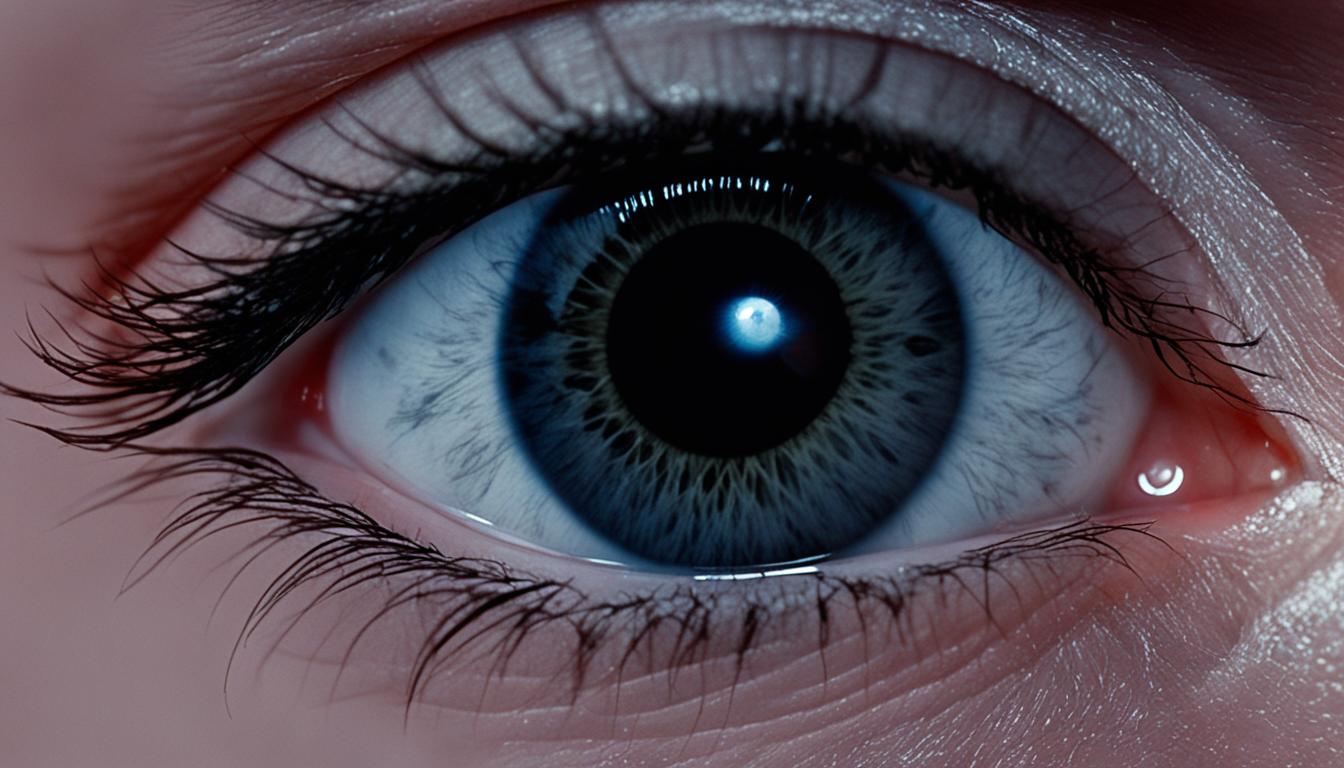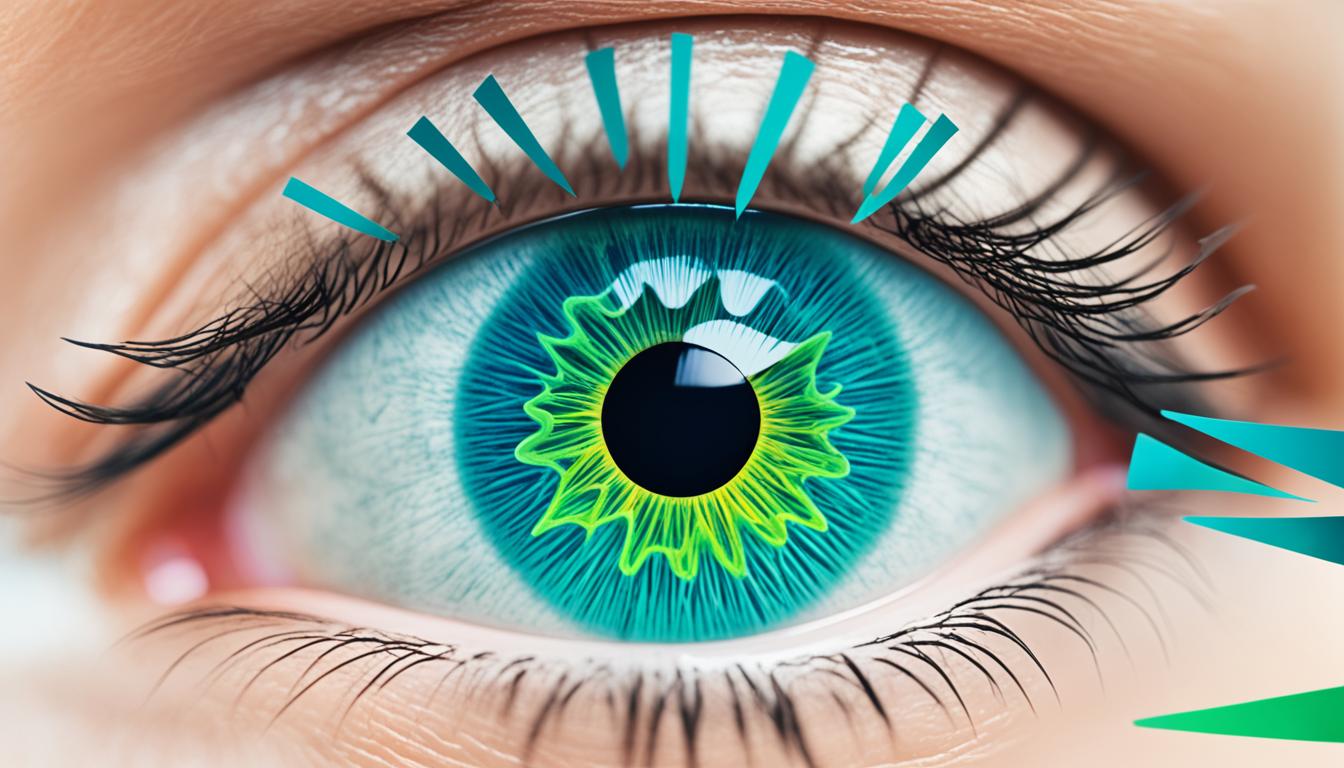In today’s fast-paced world, where prolonged screen exposure and environmental pollutants are rampant, eye care essentials are more crucial than ever. It’s essential to protect your vision to maintain good eyesight and prevent health issues. This article will provide vital tips and best practices for eye care to safeguard your vision. From regular check-ups to a healthy lifestyle and protective measures against harmful conditions, proactive steps can significantly enhance your visual wellness. Let’s explore the essential practices to keep your eyes healthy and vibrant.
Key Takeaways
- Annual eye exams can catch early signs of serious conditions such as glaucoma and cataracts.
- Prolonged screen time can lead to digital eye strain; taking breaks is vital.
- Staying properly hydrated helps prevent dryness and irritation in your eyes.
- UV rays can increase your risk of eye diseases, so protect your eyes with proper sunglasses.
- Quitting smoking significantly lowers the risk of developing eye-related health issues.
- Managing chronic conditions is crucial for maintaining eye health and preventing further damage.
The Importance of Eye Health
Optimal eye health is crucial for your overall wellness. Your eyes are vital for everyday tasks like reading, driving, and enjoying nature’s beauty. Many eye conditions can go unnoticed, highlighting the need for effective eye health tips.
Age, lifestyle, and genetics significantly affect your risk of eye disorders. Regular eye exams are key for catching potential issues early. Dilated exams can uncover conditions like glaucoma and macular degeneration before symptoms appear. Proper vision protection against UV rays can reduce the risk of cataracts.
Practicing eye wellness is essential for maintaining your vision. Washing your hands before touching contact lenses prevents infections. The 20-20-20 rule, which involves looking at something 20 feet away for 20 seconds every 20 minutes, helps prevent eye strain from screen time.
Knowing your family’s medical history can shed light on your risk for eye diseases. Omega-3 fatty acids from fish and regular exercise can boost eye health. They help manage conditions like diabetes, which affects vision. Adopting these eye health tips ensures you protect your vision proactively.

Understanding Common Eye Conditions
Recognizing common eye conditions is crucial for preserving your vision. Conditions such as myopia and hyperopia make it hard to see clearly at different distances. These issues are often linked to genetics and the environment. Symptoms include trouble seeing far-off objects and squinting, or difficulty focusing on close items.
Effective eye health solutions like prescription glasses or contact lenses can help alleviate these problems. Understanding these solutions is key to managing your vision effectively.
Astigmatism causes distorted vision due to a cornea that is not shaped correctly. This can lead to eye strain and headaches. Treatment options include specialized lenses or refractive surgery like LASIK.
Cataracts are a common condition in older adults, causing blurred vision if left untreated. Aging and excessive sunlight exposure can contribute to cataracts. Surgery, replacing the cloudy lens with an artificial one, is a common treatment.
Glaucoma is a serious condition that can cause irreversible vision loss by damaging the optic nerve. Regular eye exams are vital for managing glaucoma, with treatments ranging from eye drops to laser therapy.
Being aware of diabetic retinopathy is crucial for those with diabetes. This condition affects the retina’s blood vessels and can lead to severe vision loss without timely treatment.
Staying informed about these eye conditions is essential for managing your vision. Regular eye exams can detect potential issues early, leading to better outcomes. By integrating preventative measures and treatments, you can actively participate in your eye wellness journey.
Eye Care Essentials
Understanding eye care essentials is crucial for maintaining your vision. Regular eye exams are key to catching issues early and preserving your sight. Each visit to an optometrist or ophthalmologist provides a chance for thorough eye assessments. This ensures any emerging conditions are tackled swiftly.
Critical Components of Eye Wellness
Adopting small yet effective daily habits is essential for eye care. Ensuring proper lighting when reading and setting up your screen ergonomically can greatly reduce eye strain. For those with prolonged screen time, a digital detox periodically helps your eyes rest and recover. This simple change promotes eye wellness and reduces discomfort.
Daily Practices for Healthy Eyes
Nourishing your body with foods that support eye health is vital. Consuming foods rich in omega-3 fatty acids, vitamins A, C, D, and E helps maintain sharp vision and lowers eye disease risk. Often, the importance of adequate hydration is overlooked, yet it’s crucial for eye wellness. A proactive stance on eye care today can lead to healthier eyes tomorrow.
Regular Eye Exams: Why They Matter
Incorporating regular eye exams into your eye care routine is crucial for maintaining optimal vision and overall eye health. An annual visit to an optometrist allows for the early detection of eye conditions like glaucoma and macular degeneration. These conditions often develop slowly, so you might not notice them until significant damage is done. Early intervention can prevent irreversible vision loss.
Your eye care professional checks more than just how well you see during each exam. They assess your peripheral vision, depth perception, and color vision, among other things. This thorough check can reveal underlying issues that could cause discomfort or lead to serious conditions if ignored.
Regular check-ups are vital for different age groups. Children from birth to 2 years need these exams to catch potential problems early. Adults aged 18 to 39 should get them every two years if they’re at low risk. As you get older, you should visit more often, with those 65 and up needing annual exams.
Some people might not see the value in these exams until they start experiencing symptoms or are advised to see a specialist. A report shows over 75% of adults use some vision correction, showing how common vision issues are. Optometrists use advanced technology to spot early detection of eye conditions linked to health issues like diabetes and hypertension.
Having regular eye exams is key to managing your eye health and vision proactively. Don’t let neglect lead to avoidable problems. Start taking care of your vision by making these crucial check-ups a priority.
For more information on eye health, check out this helpful resource on eye care essentials.
Tips for Preventing Eye Strain
In today’s digital era, many spend hours on screens, raising concerns about eye health. Effective strategies can boost your vision health and overall well-being. The 20-20-20 rule is a key strategy. It suggests taking breaks by looking at something 20 feet away for 20 seconds after every 20 minutes of screen time. This helps relax your eye muscles and reduces fatigue.
Implementing the 20-20-20 Rule
The 20-20-20 rule is crucial for eye care. Following it regularly reduces discomfort and supports long-term vision health. Additionally, keep your screen at an arm’s length away and slightly below eye level to lessen strain.
Proper lighting is vital for eye care. Avoid harsh glare and excessive brightness to enhance comfort during screen time. Blink more often to keep your eyes moist and prevent dryness from prolonged screen focus. By adopting these tips, you can protect your eyes and maintain clear vision.
Healthy Diet for Maintaining Good Eyesight
A balanced diet is crucial for keeping your eyes healthy. Your eyes require certain nutrients to work well and fight age-related problems. Eating a mix of foods high in these nutrients can greatly improve your vision health.
Nutrients Essential for Eye Health
Important nutrients for eye health include omega-3 fatty acids, lutein, zinc, and vitamins C and E. Omega-3s, found in fish like salmon and tuna, may lower the risk of eye diseases as you age. Lutein and zeaxanthin, in leafy greens like kale and spinach, protect the macula, key for clear vision. Zinc is essential for eye health and can be found in beans, oysters, and fortified cereals.
Foods to Include in Your Diet
Add foods like sweet potatoes, which give you over 200% of the daily vitamin A you need, along with citrus fruits, peaches, and red bell peppers for vitamin C. These fruits provide antioxidants, vital for fighting eye oxidative stress. Eating these nutrient-packed foods regularly helps keep your eyes in good shape for life.

Protecting Your Eyes from UV Rays
Protecting your eyes from UV rays is crucial for long-term eye health. These rays can cause serious damage, leading to conditions like cataracts and macular degeneration. Always wear sunglasses that block 99 to 100 percent of UVA and UVB rays. Look for lenses marked as UV400 for the best protection.
Wearing sunglasses is key, especially during peak UV hours from 10 a.m. to 4 p.m. UV rays can pass through clouds, so protection is necessary even on cloudy days. Wide-brimmed hats also help by blocking direct sunlight and reducing sun damage to eyes.
Children are more vulnerable to UV rays, making it vital to ensure they wear UV-blocking sunglasses and hats. Surfaces like snow and water reflect UV rays, so extra caution is needed in these settings. Using UV-blocking contact lenses provides additional protection, but sunglasses should still be worn.

Regular eye check-ups with an eye care professional are important for monitoring UV exposure effects. Taking these protective steps can significantly lower the risk of UV-related eye problems. This way, you can maintain healthy vision for a lifetime.
The Role of Proper Hydration
Proper hydration is crucial for both overall health and eye function. Aiming for 8 to 10 glasses of water daily meets your body’s moisture needs. Not drinking enough water can lead to fatigue and worsen dry eyes and discomfort. Dehydration symptoms, such as thirst, dark yellow urine, and less frequent urination, can significantly impact your eye health.
Using digital devices often reduces your blinking rate, increasing the risk of drying out your eyes. Regular hydration helps keep moisture levels up, ensuring the tear film stays intact. Proper hydration aids in eye health solutions, like reducing eye fatigue from extended screen time. Following the 20-20-20 rule helps too; take a break every 20 minutes to look at something 20 feet away for at least 20 seconds.
Drinking enough water is key, but eating water-rich foods can also help. It’s important to limit alcohol and caffeine as they can cause dehydration. Keeping hydrated ensures your eyes have the right fluid balance, which is key to maintaining moisture.
Preventing chronic dehydration is crucial for avoiding dry eye symptoms. Drinking enough water keeps your eyes comfortable during long periods of focus. Being mindful of your hydration can support your vision and overall health.
Smoking and Its Impact on Eye Health
Smoking is a major threat to eye health, affecting more than just the lungs. Studies show that smokers are two to three times more likely to get cataracts. This condition clouds the eye’s lens, potentially causing vision loss if not treated. Smoking also raises the risk of age-related macular degeneration (AMD) by up to four times, leading to severe vision problems.
Young smokers are not spared from smoking’s harmful effects. About 40% of middle and high school students who smoke use two or more tobacco products. This habit significantly increases the risk of eye issues like dryness, redness, and blurry vision. Even toddlers and children exposed to secondhand smoke can suffer eye damage by age six.

The dangers of smoking extend beyond the immediate effects. Babies born to smoking mothers face a five-fold higher risk of bacterial meningitis as children. Premature birth due to maternal smoking can lead to retinopathy of prematurity, a condition that may cause long-term vision loss. Serious eye injuries from e-cigarette explosions further highlight the risks of smoking.
Committing to quit smoking is a crucial step for better health. Choosing a smoke-free life not only boosts overall health but also helps prevent vision loss. Quitting can significantly reduce the risk of cataracts and AMD, safeguarding your vision for the future.
Managing Chronic Conditions for Better Vision
Chronic conditions like diabetes and high blood pressure can significantly impact your eye health. It’s crucial to manage these conditions effectively to protect your vision. Regular visits to the optometrist, at least every two years, can help identify potential issues early. For those with diabetes, a specific diabetic eye care plan is essential to preserve your vision.
Understanding how your health conditions affect your vision is key to long-term eye health. Adopting a healthy lifestyle, including a diet rich in essential nutrients, can reduce risks. Staying hydrated also supports eye health and can ease dry eye symptoms. Aim to drink plenty of water daily.
Screen time can also impact your vision. To reduce eye strain, follow the 20-20-20 rule. Every 20 minutes, look at something 20 feet away for at least 20 seconds. This simple routine can help maintain your eye comfort during screen use.
When outdoors, wearing sunglasses with 100% UV protection is crucial. These sunglasses shield your eyes from harmful UV rays, reducing the risk of eye problems. Additionally, maintaining good eyelid hygiene with products like Blephaclean Wipes is important, especially for contact lens users.
For dry eyes, consider using lubricating eye drops like artificial tears for moisture and comfort. Brands such as Blephasol and Blephagel can effectively soothe and hydrate dry eyes. Addressing these aspects is vital for managing chronic conditions and improving your vision for the long term.
Conclusion
Protecting your vision demands a proactive stance on eye care essentials. It’s essential to schedule regular eye exams annually. These exams are vital for catching vision changes early, ensuring timely treatment, and updating prescriptions or glasses as needed.
Moreover, making lifestyle choices that support eye health is crucial. A diet rich in vitamins A, C, E, omega-3 fatty acids, and antioxidants can significantly aid in maintaining eye health. These nutrients play a key role in preventing various eye-related issues.
Strategies for vision protection, such as wearing UV-blocking sunglasses and following the 20-20-20 rule when using digital devices, can greatly reduce eye injury risks. They also help shield against conditions like cataracts and age-related macular degeneration. Your dedication to eye care is vital for preserving your vision for the future.
Encouraging your loved ones to prioritize eye health through these practices fosters a community that values vision protection. By promoting proper eye care, you’re not only improving your own health but also setting the stage for a future where everyone can enjoy healthy sight.
FAQ
What are some effective eye health tips?
How often should I have regular eye exams?
What dietary changes can help with eye wellness?
How can I protect my eyes from UV rays?
What are some best practices for eye care during screen time?
How does hydration affect my eyes?
What risks does smoking pose to my eye health?
How do chronic conditions like diabetes affect my eyes?
What are common eye conditions I should be aware of?
Source Links
- 10 Essential Tips for Maintaining Eye Health | Teche Action Clinic – https://tabhealth.org/protect-your-vision/
- Keeping Your Eyes Healthy: Vital Care for Type 1 Diabetes – https://diabetesresearchconnection.org/protecting-your-vision-essential-eye-care-for-t1d/
- 10 Essential Eye Care Tips for Healthy Vision Every Day – https://www.findclarityvision.com/blog/10-essential-eye-care-tips-for-healthy-vision-every-day.html
- Eye Care | Vision Care | MedlinePlus – https://medlineplus.gov/eyecare.html
- Adult health – https://www.mayoclinic.org/healthy-lifestyle/adult-health/basics/eye-care/hlv-20049421
- Understanding Common Eye Conditions: A Comprehensive Guide – https://www.wiregrasseyecare.com/blog/understanding-common-eye-conditions-a-comprehensive-guide.html
- Guide to Eye Conditions – https://www.optometrists.org/general-practice-optometry/guide-to-eye-conditions/
- Understanding Common Eye Conditions and Treatment Options – https://www.maranaeyecare.com/blog/understanding-common-eye-conditions-and-treatment-options.html?noamp
- No title found – https://www.allaboutvision.com/eye-care/eye-care-basics/
- Eye Care Relief and Treatment – CVS Pharmacy – https://www.cvs.com/shop/personal-care/eye-care
- Comprehensive eye exams – https://www.aoa.org/healthy-eyes/caring-for-your-eyes/eye-exams
- Eye Exams: What to Expect and Why They Matter – https://www.oakbrookoptical.com/eye-exams-what-to-expect-and-why-they-matter/
- Why Regular Eye Exams are Important For Eye Health – https://www.chanoptometry.com/blogs/blog/1240836-why-regular-eye-exams-are-important-for-eye-health
- Eyestrain – Diagnosis and treatment – Mayo Clinic – https://www.mayoclinic.org/diseases-conditions/eyestrain/diagnosis-treatment/drc-20372403
- Eyestrain: 8 Tips for Prevention – https://www.healthline.com/health/eye-health/eye-strain
- 8 Tips to Prevent EyeStrain at Work – https://eyecare-carteret.com/2024/03/14/8-tips-to-prevent-eyestrain/
- 36 Fabulous Foods to Boost Eye Health – https://www.aao.org/eye-health/tips-prevention/fabulous-foods-your-eyes
- 6 Tips for Eye Health and Maintaining Good Eyesight – https://www.webmd.com/eye-health/good-eyesight
- 8 Nutrients That Will Optimize Your Eye Health – https://www.healthline.com/nutrition/8-nutrients-for-eyes
- Protecting your eyes from the sun’s UV light – https://www.nei.nih.gov/about/news-and-events/news/protecting-your-eyes-suns-uv-light
- UV Protection for Eye Health: Tips & Strategies – https://centerforsight.net/the-importance-of-uv-protection-for-eye-health-tips-and-strategies/
- The Role of Hydration in Maintaining Eye Health – https://www.zennioptical.com/blog/the-role-of-hydration/
- The Importance of Hydration to Eye Health – https://www.novaeyedocs.com/eye-care/the-importance-of-hydration-to-eye-health/
- Stay Hydrated, Stay Healthy: Why Water Matters for Your Eyes – https://www.omnieyenc.com/stay-hydrated-stay-healthy-why-water-matters-for-your-eyes/
- How Do Smoking and Vaping Damage the Eyes? – https://www.aao.org/eye-health/tips-prevention/smokers
- How Smoking Can Contribute to Vision Loss and Blindness – https://www.fda.gov/tobacco-products/health-effects-tobacco-use/how-smoking-can-contribute-vision-loss-and-blindness
- Taking Care of Your Eyes: A Guide to Eye Health – https://www.eyelounge.co.uk/blogs/news/taking-care-of-your-eyes-a-guide-to-eye-health
- Simple Daily Habits to Maintain Your Eye Health – https://www.bethesdavisioncare.com/simple-daily-habits-to-maintain-your-eye-health/
- Importance Of Taking Care Of Eyes – https://www.ojaseyehospital.com/blog/importance-of-taking-care-of-eyes/
- Eye Care Essentials: Daily Habits for Healthy Eyes – Best Eye Hospital in Thane | Eye Specialist | Isha Netralaya – https://ishanetralaya.com/eye-care-essentials-daily-habits-for-healthy-eyes/
- Eye Care Essentials for Every Age Group – https://safety-rx.com/eye-care-essentials-for-every-age-group.html


